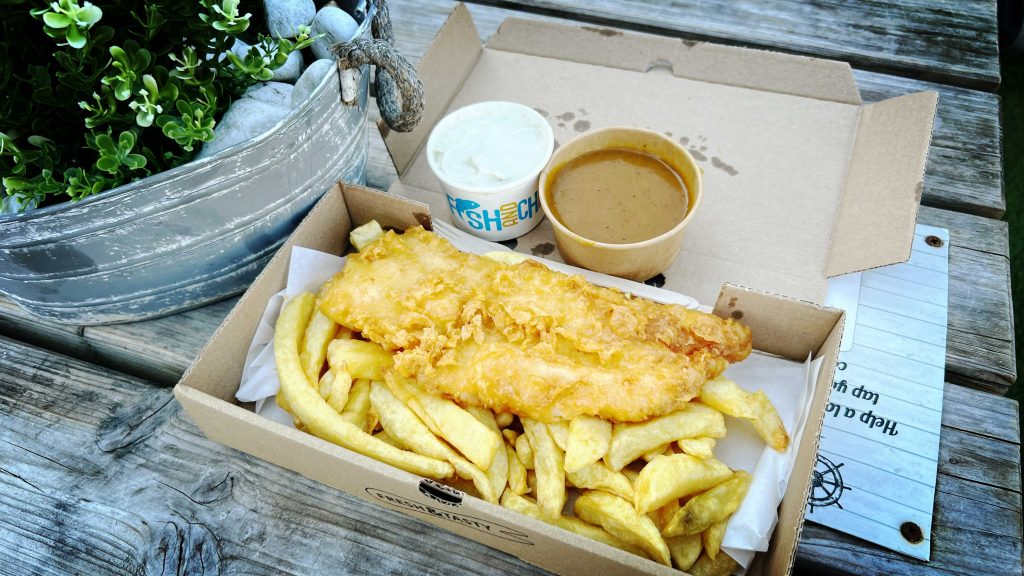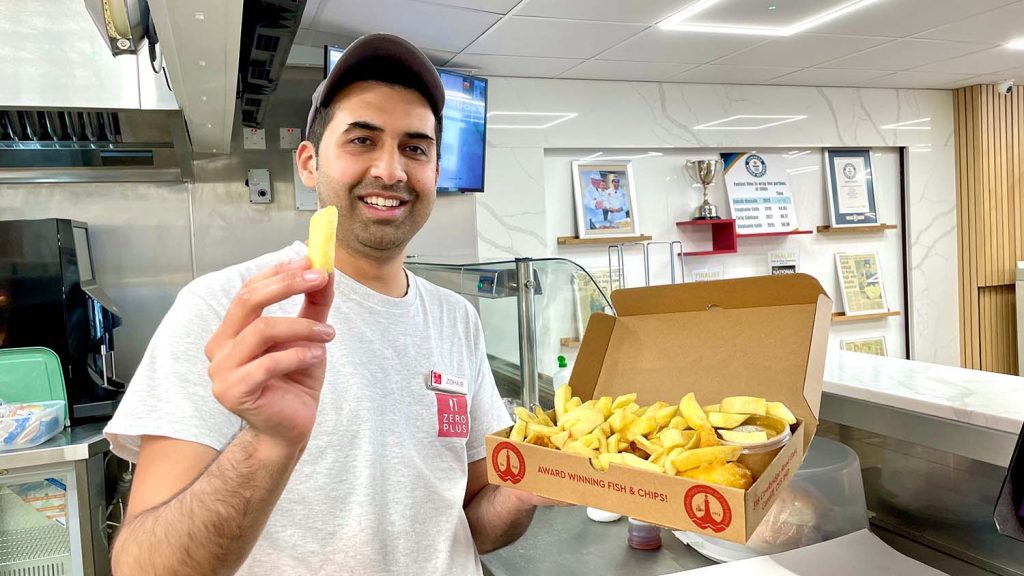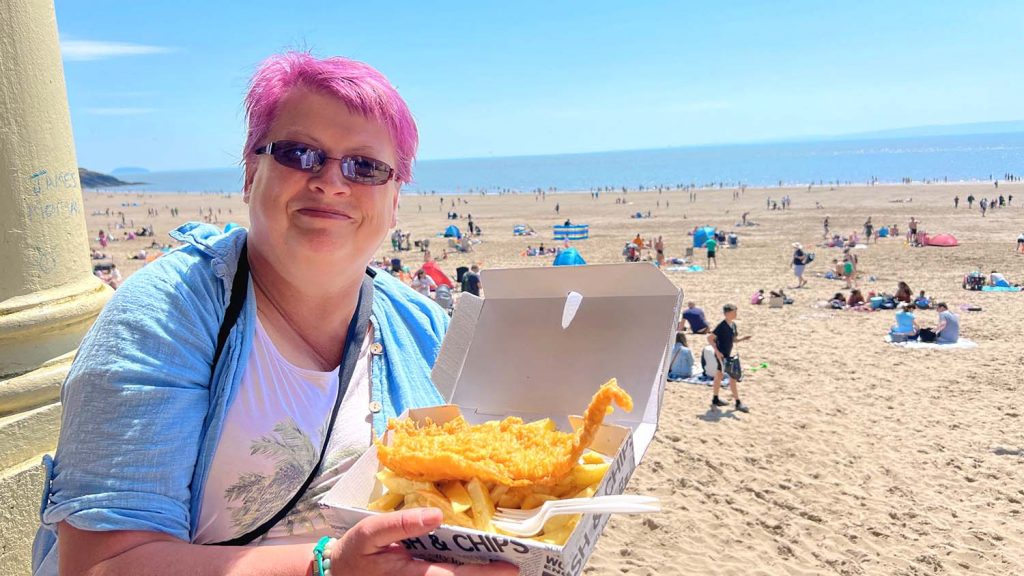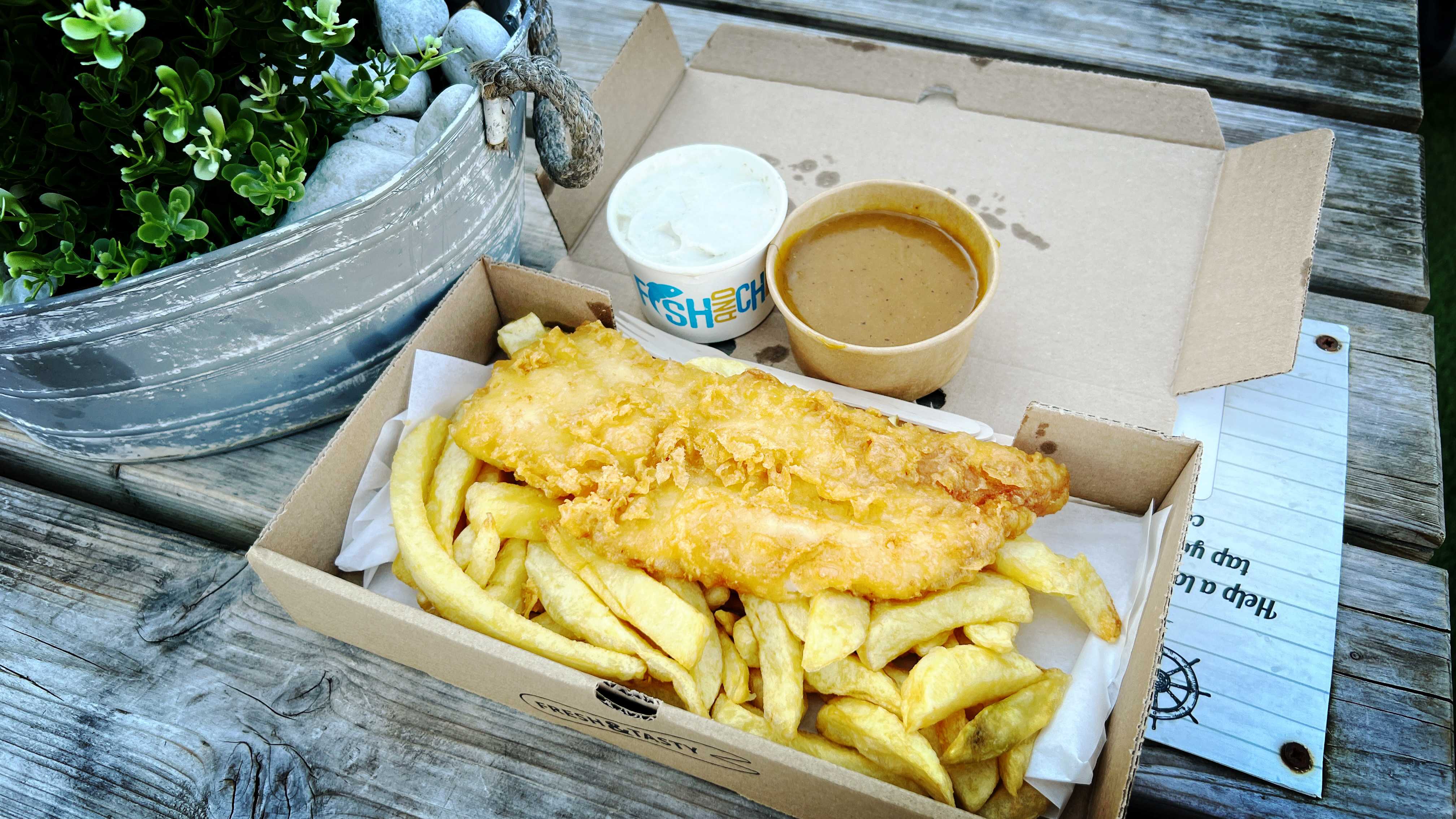“We used to have it maybe three times a month, but now it’s only when we come for treats on the beach.”

The fish and chips industry in the UK, a beloved staple, is currently facing an unprecedented crisis. Due to inflation and supply chain disruptions, costs have skyrocketed and fish stocks have dwindled, threatening the survival of many fish and chips shops. To understand the severity of the situation and explore potential solutions, I visited several award-winning chip shops in Wales to find out how tough life is and what needs to happen.
The challenges facing the fish and chips industry in the UK are multifaceted, including rising costs for fish, oil, and other ingredients. Additionally, the impact of Brexit and the Ukraine war has created a perfect storm battering this sector. According to inflation data released by the National Statistics Office, the cost of fish and chips has surged by 19 percentage points in the year ending last March. This inflationary pressure has forced many chip shops to raise their prices, affecting consumer spending.
My investigation began at Zero Plus Fish & Chips in Cardiff, a shop that holds the Guinness World Record for the fastest time to wrap five portions of chips and has won many awards in takeaway and marketing innovation. Like many others in the industry, the owner, Zohaib Hussain, faces numerous challenges and has had adapt to survive.

“There’s been a slight reduction since 5 years ago. I think we’re probably down about 20% on what we sell,” Zohaib explains, they have had to put their prices up due to the rising costs of potatoes, fish, and oil, the cost of fish has been particularly affected by fishing quotas and increased shipping costs from Norway, exacerbated by the ongoing war in Ukraine.
A similar challenge occurred at a shop in Caerphilly. “The biggest challenge for the fish and chip industry is on the seasonal ingredients.” Ryan Hughes, who is the Ship Deck shop owner, and this Welsh fish and chip shop crowned the best in the UK this year.

Ryan said: “For us potatoes being one of those because it’s a natural product. We’ve had a really wet winter, the current list of potatoes onto the ground so that means they just deteriorated in the ground the quality is not so good. And it also pushes the prices up.”
Customers are feeling the pinch as well. At Boofy’s, another popular chip shop at Barry Island, Michael Jones, a 52-year-old maintenance planner, noted, ” We used to have it maybe 3 times a month, but now it’s only when we come for treats on the beach out.” She said the price increase from £10 to £26 for a meal for two has made it a luxury rather than a regular indulgence.

Ross Clark, a seasoned food writer, provides a perspective of enjoying delicious food on the cultural and economic changes affecting the fish and chip industry. ” It’s never been a luxury item in the UK, it’s always been something is a cheap Friday meal. Also, you have to think about where you get fish and chips. Obviously, you can get fish and chips.” he mentioned the decline in seaside holidays and the increasing health consciousness among Britons have also contributed to fewer visits to chip shops.
According to BBC News, the British coast has been the ultimate summer destination for most working-class families. Since the 1960s, though, Britain’s seaside towns have slid into a breathtakingly fast decline. This is largely due to the rise in cheap flights and package holidays, which have caused people to travel abroad more often.
Ross also highlighted the cultural significance of fish and chips in British life, he said, “It’s very much associated with the seaside being by the beach or being by a typical British seaside. But now people don’t go on holiday to these places. So there’s been a decline in fish and chip shops in that way. And if you get a decline in something, there are fewer of them. It usually pushes the price up as well, the societal things as well as this as well.”
Ryan shared a positive outlook despite the challenges. “We’ve always adapted and changed as things come our way. We have contracts to keep potato prices stable, which helps manage costs,” he said. This pragmatic approach has helped Ship Deck maintain a consistent pricing strategy, crucial for retaining their customer base.
Fish and chip shops are also exploring innovative ways to stay afloat. By offering more fish varieties and focusing on sustainable sourcing, they are not only addressing supply issues but also catering to an increasingly eco-conscious customer base. “We’ve introduced new fish items onto the menu like fish bites and our own fish cakes, which helps with our sustainability credentials,” Zohaib explained.
The introduction of meal deals and special offers has been another strategy to attract customers during quieter times. “We’ve put on lunchtime meal deals and special offers for factories, offices, and schools to boost trade during the quieter periods,” Ryan noted. This proactive approach aims to keep the business bustling and maintain a steady flow of customers.
To mitigate the crisis, several other strategies can be employed. Adopting sustainable fishing practices and diversifying the types of fish used could alleviate some of the pressure on cod stocks. Government subsidies and support for small businesses could also provide much-needed relief. Additionally, as Ross suggests, promoting the cultural significance of fish and chips and maintaining quality and consistency are crucial.
“Exploring alternative fish options like Pollock, which are more sustainable and cheaper, could help. Also, emphasising the cultural and nostalgic value of fish and chips might retain customer loyalty,” Ross advised.
Despite the challenges, there is a resilient spirit within the industry. Owners like those at Ship Deck and Zero Plus are adapting by tightening portion controls and introducing meal deals to provide better value for money. As Ryan noted, “It’s about maintaining consistent quality and providing a good customer experience”.
The fish and chip industry, while facing significant hurdles, is adapting and evolving. To preserve this quintessentially British institution, a collective effort involving sustainable practices, supportive policies, and innovative business strategies is essential. By maintaining its cultural and culinary heritage, the industry can navigate through these turbulent times and continue to be a cherished part of British life. As Ross aptly puts it, “If someone said name me a British food, you would probably say fish and chips, So it’s in our psyche.”
In these challenging times, the resilience and adaptability of fish and chip shops will determine their future. With the right support and innovative approaches, this beloved British tradition can not only survive but thrive, ensuring that future generations can continue to enjoy the simple pleasure of fish and chips by the seaside.
